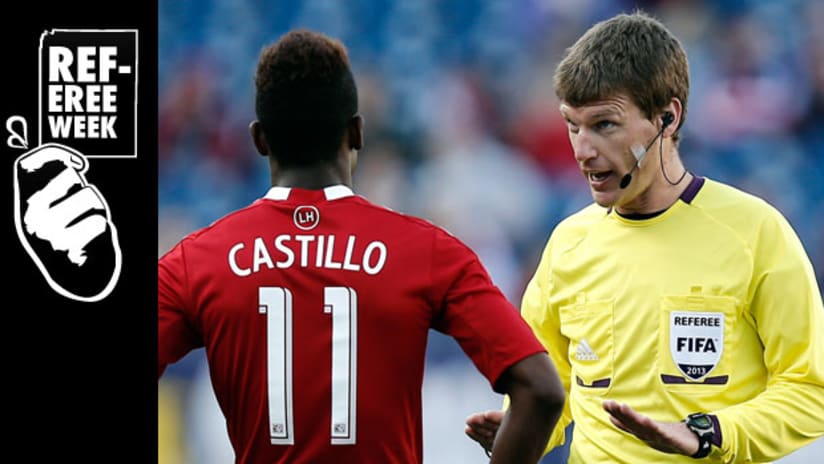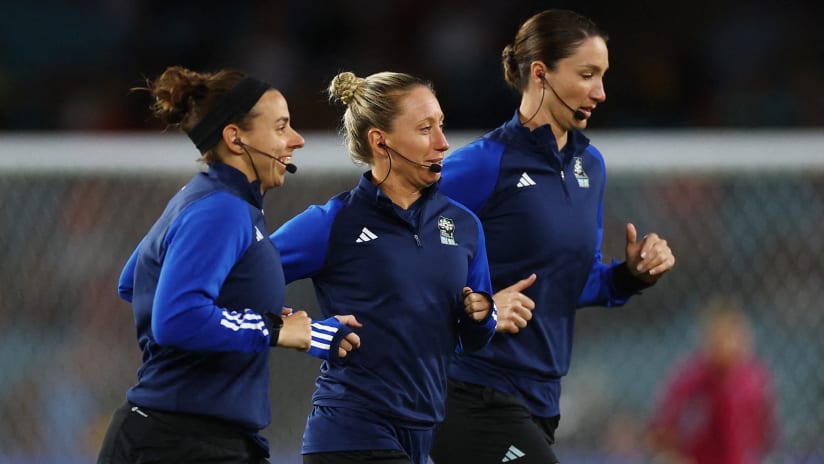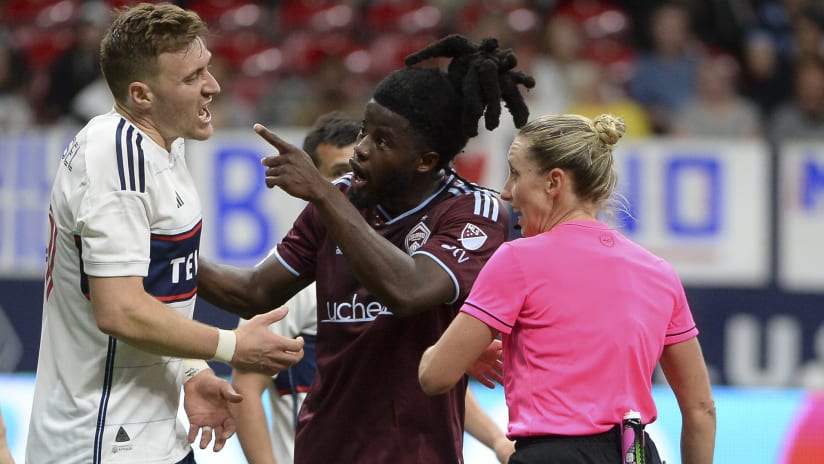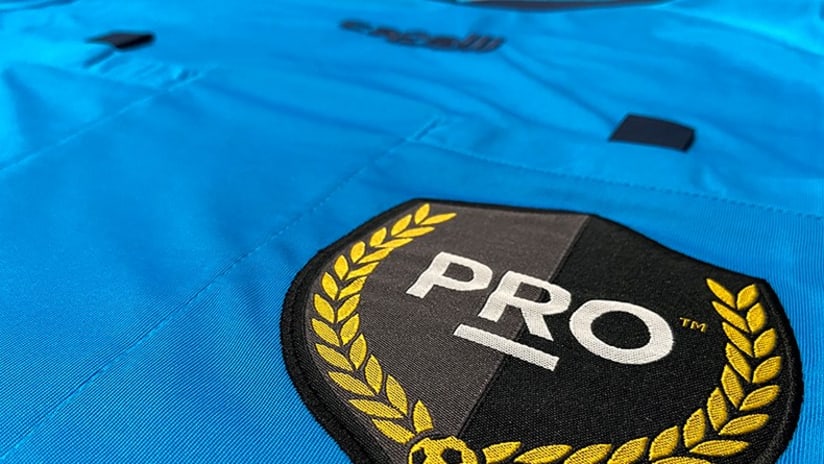SAN FRANCISCO – Every single person on a professional soccer field has spent years dedicated to his craft, and referees are no exception.
And though they're oft-maligned by many fans, a look into the path referees take to the professional ranks shows it is just as arduous the players'.
For many officials it all starts in places like San Francisco’s Crocker-Amazon Playground, where youth and adult teams from across the city flock every weekend and compete in the city’s numerous amateur leagues, one of which dates back to 1902.
These parks and playgrounds are where California North Referee Association (CNRA) alumni such as Brian Hall – a four-time MLS Referee of the Year and 2002 World Cup veteran – and Kari Seitz (below, right) – who officiated in four FIFA Women’s World Cups – first cut their teeth as officials. It's also where FIFA-level officials such as Veronica Perez, Tim Weyland, Scott Weyland and Ricardo Valenzuela got their start, and where another crop of young officials is looking to take the next step.
Of course, wanting to become a referee is not enough to take the field with a whistle. Only after classroom instruction and testing, both written and physical, can an official get a live game, usually at the U-14 level or below.
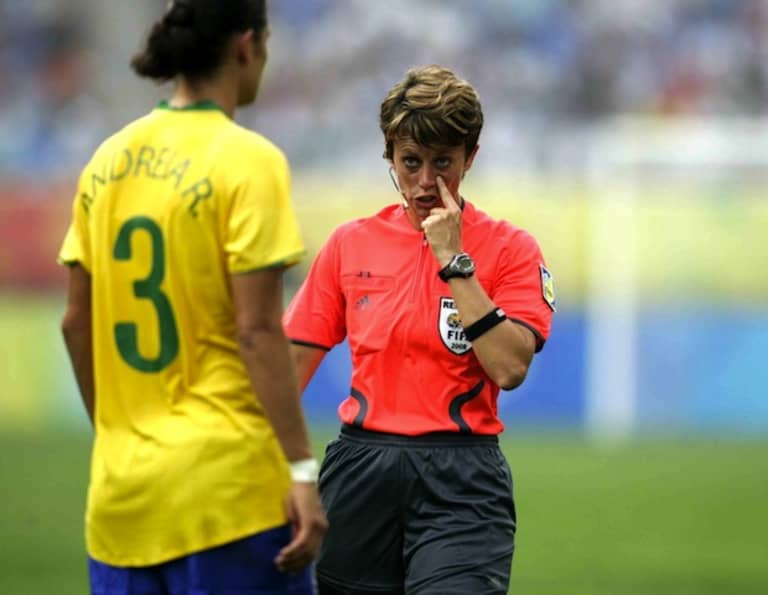
“It’s basically kind of a team working behind the scenes, if you will,” says Kenyatta Scott, the Area 1 (San Francisco) referee coordinator for the CNRA, which administers the development and assignment of referees for adult amateur and youth soccer in the area.
The association as a whole boasts 12,000 registered referees, making it one of the largest such referee organizations in the world.
“That referee may get out there and they still have to do the game, but somebody has to put them on the match,” Scott adds. “While they’re getting their teeth cut, if you will, they have to be gaining experience.”
INFOGRAPHIC: Referee Week: Cards, fouls, goals and more
There is another aspect of referee development that comes into play as a referee begins rising through the ranks – his or her relationship with more experienced referees.
“In the mentoring process you have an informal type of mentoring and a formal type of mentoring,” Scott says. “The formal type, after a referee is, say, looking to upgrade to that next level, would be an assessor.”
Adds Cesar Pina, a referee in the original NASL and the current Director of Referee Assessment for Area 1: “We evaluate the performance of the referees in a game and point out the best things that he can better about himself. We send the report to the assigners for better games for individuals, to keep him in line so they can go to clinics to better themselves.”
Meanwhile, the informal mentoring of the referees helps them focus on the more intangible aspects of their developments.
“Mentors are much more experienced," Pina says. "You have the law book, which is the more formal aspect, but then we have this thing called the spirit of the game. There’s an art to refereeing and you’ll find out pretty quick whether you can do it or not.”
READ: Referee week: An introduction to the 2013 edition of MLSsoccer.com's exclusive series
As a referee gains the experience and the know-how to officiate games, and progresses from youth soccer to the adult level, he or she will gain the opportunity to earn a grade set by the U.S. Soccer Federation ranging from 12 to 1. Each grade is earned by a battery of examinations, match experience and evaluation.
And each passing grade lets the official ply his/her trade at various levels of the soccer pyramid, from the youngest age categories to the international game, which requires years of experience, hundreds of games and top physical condition.
Getting passing grades, however, is only part of the equation.
“You can have a referee who will pass the test with 100 percent written test, pass the physical test at 99 or 100 percent and you put them in the middle of the field and they can’t find the field with their two hands and a seeing-eye dog,” say Ric Olivas, a longtime referee who serves on the State Referee Committee. “Because they lack the charisma, they lack the personality. Yes, they know the rules, they know the game, but the application is where they fall very short, and it’s because they’re not well-rounded.”
One of those key personality traits is humility. Pina points out how, despite their rise to the international soccer ranks, Hall and Seitz have always been ready and willing to serve the grassroots level when called upon.
“Once [young referees] have regional games, finals, they come out ten feet tall. That’s not it. That’s not what we want them to do,” Pina explains. “Because if they work this game up here, they should be working the same game at U-12, U-14 and never underestimate any game. That’s the key.”
So don’t be surprised if you see a referee you may have seen on TV holding the whistle at your local field – they’re probably just honing their craft, just like the players and young referees they're watching over.

